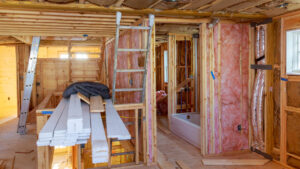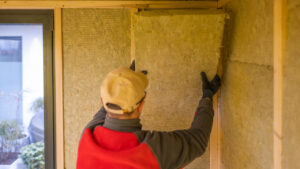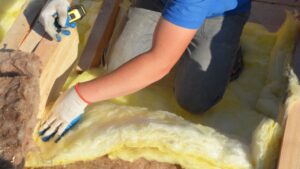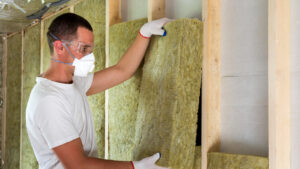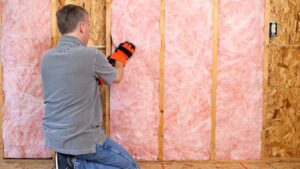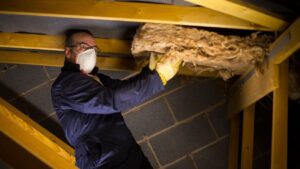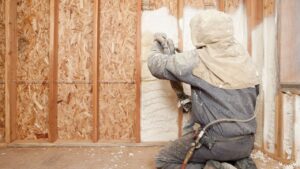Lowering your home’s energy usage by using energy-efficient ways to do your chores saves money. There are numerous ways to save money and lower your carbon footprint, but one of the most effective ways is to focus on energy waste and use it more effectively and efficiently in daily life. The following are some of the most successful strategies for lowering your energy use and increasing the efficiency of your business or home.
Take Care Not to Excessively Adjust the Thermostat
By modifying your thermostat’s behavior, you can significantly reduce your annual utility bill. Avoid lowering your thermostat in the summer months to alternate the cooling process. Cooling your home with an air conditioner takes time due to the amount of humidity that the air conditioner removes. Because the humidity has not been removed, significantly lowering the thermostat will not result in a faster cooling process. This simply prolongs the time required for the AC to reach the desired lower temperature setting.
If you want more control over your temperature settings, a smart thermostat can determine the temperature you prefer based on your habits. It communicates wirelessly with temperature sensors strategically positioned throughout your home, automatically adjusting the temperature to your preferences. Additionally, you can save between 10% and 20% on your monthly energy bill by incorporating smart home technology into your home.
Determine the Appropriate Temperature Setting Point
The smaller the temperature disparity between indoor and outdoor temperatures, the less money you’ll spend on heating and cooling. Experiment with your thermostat to find the optimal comfortable and economical temperature. You should set your thermostat at 25.5 C during the warmer months and gradually reduce the temperature by one or two degrees. Ideally, you want to maintain a good summer temperature and a comfortable winter humidity level.
Turn Off Heating Systems When You’re Leaving
You can save money on heating during the winter by lowering the thermostat by two degrees while you’re gone. This is an effective approach in the winter; however, avoid utilizing it throughout the summer. To cool an area rather than heat it. After lowering the thermostat, the energy required to cool your home and remove the accumulated humidity is frequently larger than the energy required to maintain a set temperature.
Utilize Your Ceiling Fan
Utilizing a ceiling fan to cool your home may also help you save money on your electric bill. Turn your fan counterclockwise to stay cool without using air conditioning. When it’s hot outdoors, use your ceiling fan to assist in dispersing the cool air from your HVAC system throughout your home without turning on the air conditioner fully.
Ceiling fans may help you save money on heating and cooling. If you spin your fan clockwise during the cooler months, the heated air that rises to the ceiling can be forced down into the remainder of your home without creating a breeze.
When it comes to reducing your monthly power expenses, using a ceiling fan in your home is an excellent alternative. Ensure that your fan rotates in the desired direction to achieve the desired effect.
Monitor the Duration of your Showers and Replace your Showerhead as Needed
The simplest way to conserve water while showering is to be mindful of how long the water is running. If this is an issue in your household, consider installing a shower timer. Additionally, installing low-flow showerheads is an excellent idea. There is a significant difference in water use between regular and low-flow showerheads. Making even a handful of these modest improvements can significantly save money and water.
Make Wise Use of Technology
Numerous electronic devices, including smartphones, laptops, game consoles, and chargers, consume little quantities of electricity. What is the average number of electronic gadgets in a Canadian household? Phantom power, the energy consumed when a device is turned off, can account for up to 10% of a home’s overall energy consumption. You can save up to $150 each year if you check your devices and disconnect them when they are fully charged.
Place an order for double-paned windows.
Preventing air leakage through window cracks and gaps is crucial, as windows account for between 15% and 20% of the surface area of your home. Even the highest-quality sealed single-pane windows have a low R-value. A double-pane window’s gas between the panes functions as an insulator. Additionally, you can boost the R-value of your windows by utilizing double pane windows to close off air gaps during cold and hot weather. Investing in new windows has saved up to a quarter of annual energy bills.
Ensure That Your Chimney Is Sealed
A wood-burning fireplace’s damper must be completely closed to prevent smoke from escaping your home, particularly in the summer. Over time, heating and cooling can deform a chimney damper, impairing its capacity to seal effectively. Contact a professional if your damper leaks or use an inflated chimney balloon. When inflated, a chimney balloon can be used to seal your flue.
Proper Roof Space Airflow
Assembling an adequate ventilation system for your home may help you save money on your heating and cooling expenditures. Proper attic ventilation helps keep your home cool in the summer. In the winter, warm, moist air condenses and reduces the efficacy of your insulation. Proper ventilation eliminates this possibility. Consult an expert to determine whether your attic is properly ventilated.
Additionally, increasing the amount of batting-type insulation in your attic can prevent heat and cold from escaping through your roof. Insulation is available in a variety of types. Seek professional advice when selecting the appropriate insulation for your application.
Keep Your Windows Closed and Enclosed During the Summer
When a room is extremely humid, it becomes sticky and uninhabitable. When the weather outside is hot and humid, it is critical to keep your windows closed to allow your central air conditioner to accomplish its work of removing heat from your home. As a result of opening the windows, your air conditioner will have to work more to maintain a pleasant temperature in your home. A home’s humidity level should be between 35 and 50%. Close all window coverings that face the sun during the hottest months of the year to limit heat gain in your home.
Hire Universal Insulation Doctor to cater to your insulation concerns and help you save energy in your home.

